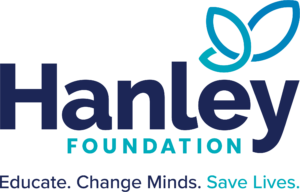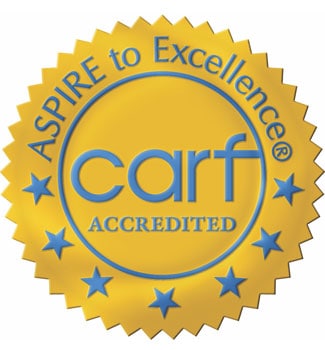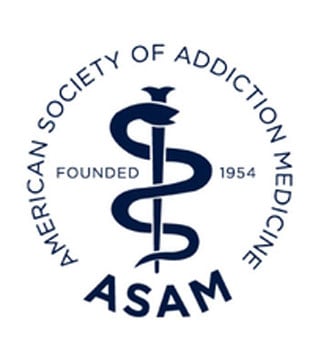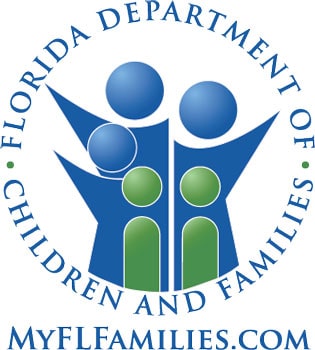Co-Occurring Disorder Treatment in Florida

People with a mental health disorder are far more likely also to have a substance use disorder. When both a mental health and a substance use disorder are present, they are called co-occurring disorders. These disorders affect virtually every aspect of an individual’s life — physical, mental, emotional, psychological, and spiritual.
At Hanley Center, we recognize the relationships between different disorders and how they must be treated jointly. That’s why we offer integrated treatment for co-occurring disorders.
What is a Co-Occurring Disorder?
A co-occurring disorder, also known as a dual diagnosis, refers to the presence of both a mental health disorder and a substance use disorder occurring simultaneously in an individual.
Comorbid mental health and substance use means that someone may struggle with conditions such as depression, anxiety, bipolar disorder, or post-traumatic stress disorder (PTSD) alongside issues related to substance use disorder.
Examples of co-occurring disorders include depression and alcoholism, anxiety disorder and cocaine addiction, or bipolar disorder and opioid dependence.
Why Do People with Co-Occurring Disorders Need Personalized Treatment?
Co-occurring conditions can exacerbate each other and make treatment more complex, as addressing one disorder often requires considering the impact and treatment of the other.
Integrated treatment approaches that address both the mental health and substance use components concurrently tend to be most effective for individuals with co-occurring disorders.
If you suffer from co-occurring disorders, you are not alone.
The National Survey of Substance Abuse Treatment Services (N-SSATS) reports that approximately 45% of Americans seeking addiction treatment suffer from co-occurring mental and substance use disorders. This includes mental health illnesses, such as anxiety and depression.
To achieve sustained wellness, these conditions must be treated at the same time as substance use. A lifelong health plan needs to include techniques to address every single condition.
Mood disorders:
Clinical depression debilitates normal functioning in life. It is the most common co-occurring diagnosis among people with addictive illnesses, along with anxiety. Bipolar disorder, dysthymia, or substance-induced mood disorders are other types of mood disorders.
Anxiety disorders:
Anxiety Disorder includes a broad spectrum of emotional experiences, from reactions to everyday situations to severe anxiety. People with substance use disorders frequently cite anxiety symptoms and require specialized care.
PTSD:
Post-Traumatic Stress Disorder (PTSD) affects both men and women equally, and traumatic life events trigger it. In drug and alcohol treatment, many women have suffered verbal, physical, or sexual abuse. Disassociation from oneself and events, anger, depression, high anxiety, and insomnia are a few symptoms of PTSD.
Obsessive-Compulsive Disorders:
Obsessive-compulsive disorders are chronic conditions in which a person experiences uncontrollable thoughts, obsessions, or behaviors that the person feels the urge to repeat again and again. When these disorders are combined with addiction, they can severely impact a person’s life.
Process addictions:
Process addictions often co-occur with a substance use disorder, such as shopping, gambling, disordered eating, and sex. Cross-addictive behaviors may exacerbate one another.
Personality disorders:
Personality disorders include borderline personality disorder (BPD), narcissistic personality disorder, and histrionic personality disorder. All three of these disorders are common among people with addiction. Other examples could include paranoid personality disorder, schizoid personality disorder, avoidant personality disorder, and dependent personality disorder.
Mental Health Disorders are Complex – Integrative Treatment Is the Answer
Integrated co-occurring disorder treatment is a comprehensive approach that offers all the therapeutic resources necessary to aid physical, mental, emotional, and psychological healing.
Living with a mental disorder may increase the likelihood of developing substance use disorder — and vice versa. All people are unique. A mental health disorder may have preceded drug or alcohol abuse in some cases. In some instances, mental health symptoms appear after addiction has taken hold — in some cases, these conditions can be worsened by drug use.
For people with co-occurring disorders, a comprehensive treatment plan should include:
- Evidence-based therapy
- Medical care (including medication, when appropriate)
- Psychiatric services and ongoing care
- Case management
- Family education and programming
- Life skills training
- Recovery support
- Continuing care planning
Hanley Center has been treating people with co-occurring disorders for over three decades. With the right help, we know people can and do recover.

Treatment Begins with an Assessment
Every patient deserves a co-occurring disorder treatment plan customized to their specific needs. A comprehensive behavioral health assessment and psychological testing is conducted on each patient at our Center for Brain Recovery at Hanley Center to ensure that all substance-use disorders and co-occurring mental health disorders are diagnosed and treated.
We offer tests such as:
- PEPQ (PsychEval Personality Questionnaire)
- MMPI-2 (Minnesota Multiphasic Personality Inventory-2)
- MCMI (Millon Clinical Multiaxial Inventory)
In addition to clinical interviews and sessions with their primary therapist, our thorough assessment provides a foundation for meeting each patient’s unique needs.
Effective treatment of co-occurring disorders requires treatment simultaneously by the same treatment team at the same place.
Our medically intensive and multi-disciplinary programming treats co-occurring disorders through the expertise of our highly trained professionals. Our treatment teams address not only the physical and mental needs of our patients but also their psychological and spiritual needs.
Every day, our highly trained staff members — from medical professionals to licensed therapists and psychiatrists — gather to discuss patient cases and work towards solutions. A specialized, integrated treatment model has been proven to improve outcomes and quality of life.
Center for Brain Recovery
Co-occurring disorders can negatively affect and exacerbate each other, which makes successful treatment more challenging.
CBR at Hanley Center, our health psychology department, is an innovative program that promotes brain health through evidence-based therapies. CBR services are specifically designed to recognize the connection between addiction and mental health disorders as well as to provide treatment that addresses both concerns simultaneously, offering our patients a greater chance at long-term recovery.
We have Continuing Care for the Whole Family
Those with co-occurring disorders require lifelong support. Our team of continuing care specialists works together with patients and their families to develop a discharge plan that leads to long-term success. These recommendations may include:
- Ongoing therapy
- Intensive outpatient
- Scheduled appointments with psychiatrists and medical doctors
- Medication management
- Wellness recommendations
- Transitional living
- 12-Step programming and fellowship
Family Services
Our licensed family and marriage therapists also work with our patient’s families to build a continuing care plan that supports family healing.
Recovery is possible. People do recover.
Although there is no cure for any mental health disorder, including addiction, many individuals go on to lead extraordinary lives filled with hope and courage.
Co-occurring disorder treatment interventions based on research have proven effective in treating patients with co-occurring diagnoses. The key is to receive personalized treatment that is intensive and integrated. People with co-occurring disorders can recover with long-term support and therapeutic interventions.
As one of the leading co-occurring disorder treatment centers, we know that co-occurring mental health and substance use disorders impact one another and that they must be treated together. Recovery is dependent on a healthy mind, body, and spirit.
Insurance Can Cover up to 100% of Treatment
We offer free, no obligation health insurance benefit checks. If you are currently insured, your treatment could be covered partially or in full.
Information entered on this form will not be used to initiate SMS.
Address: 933 45th Street
West Palm Beach, FL 33407




